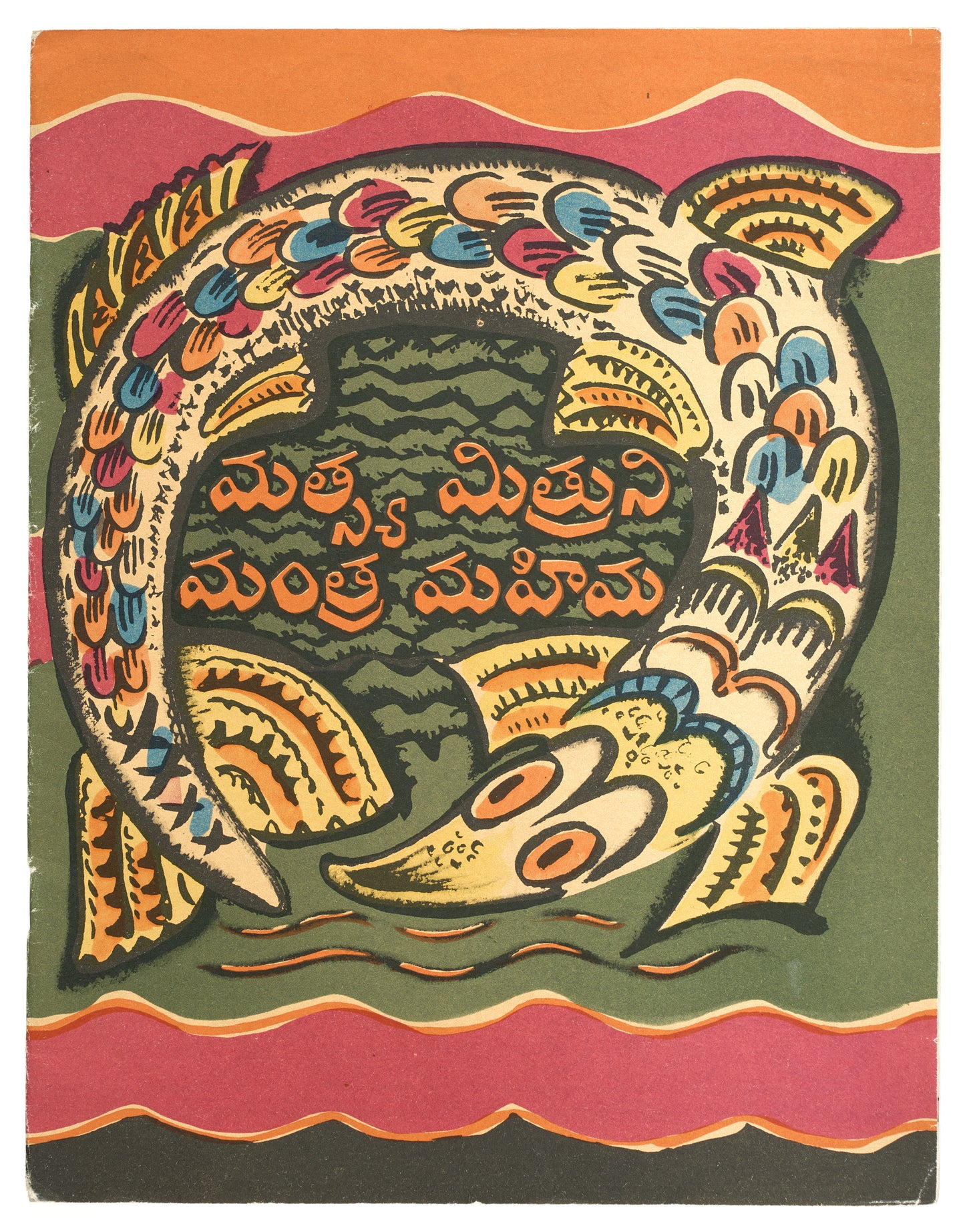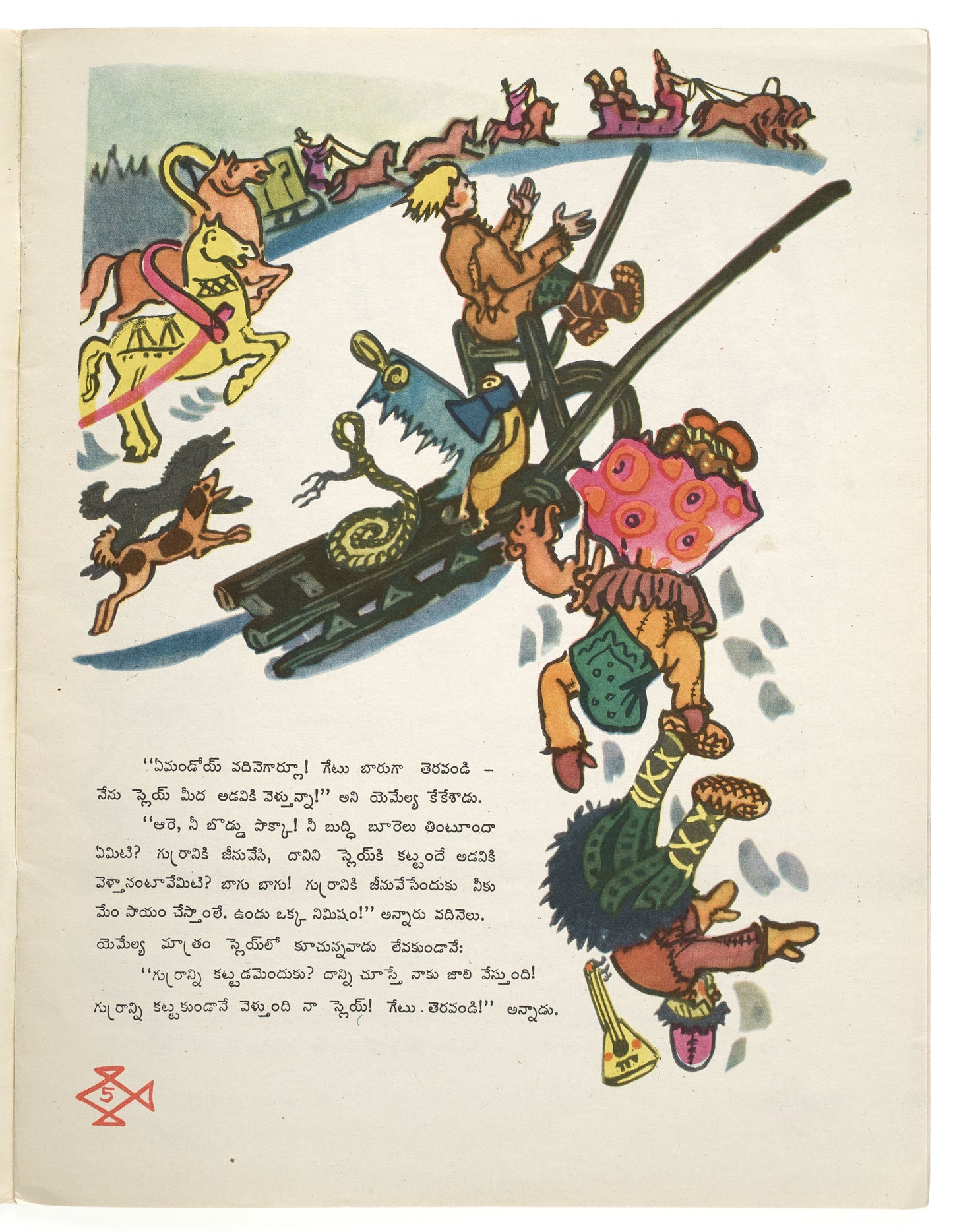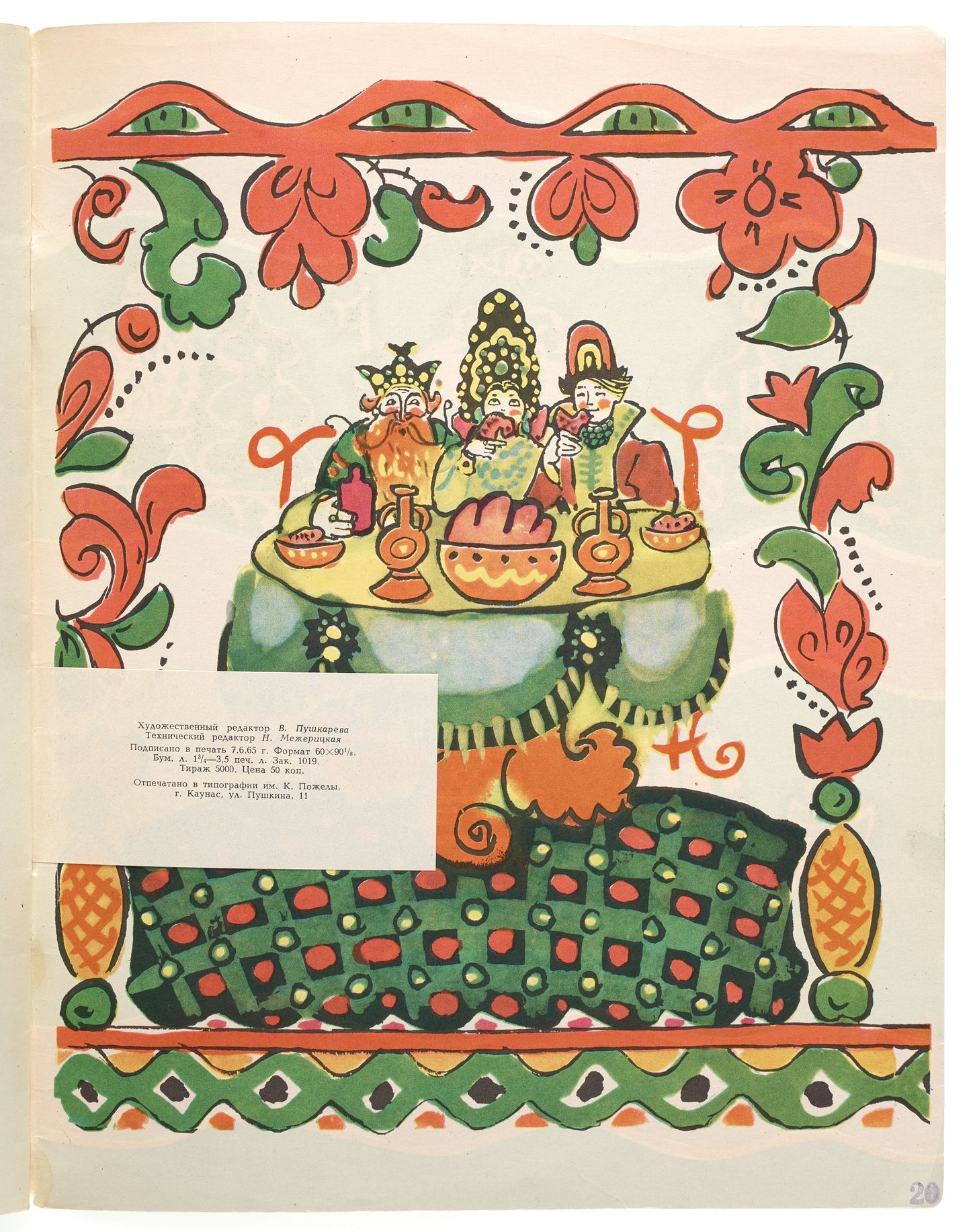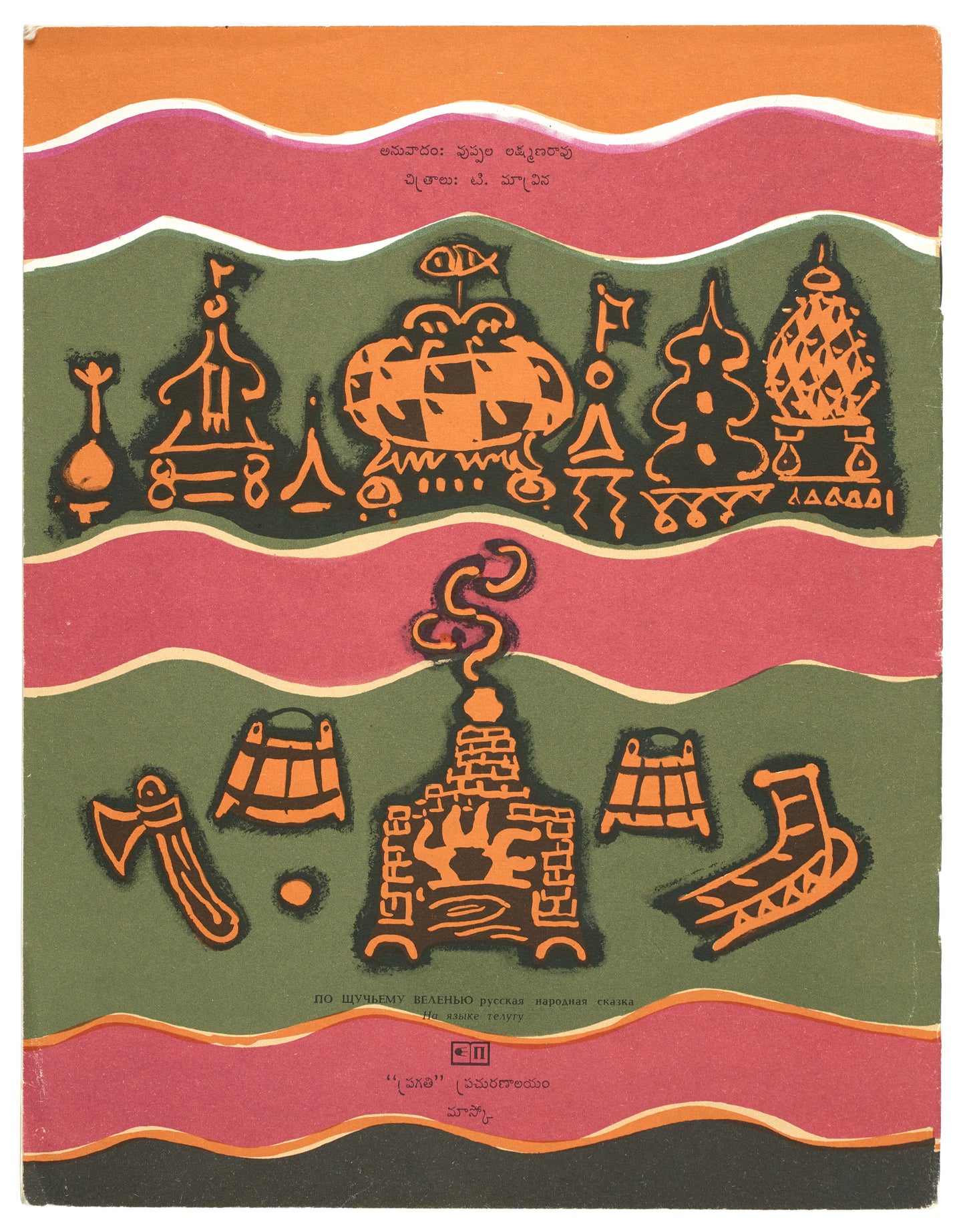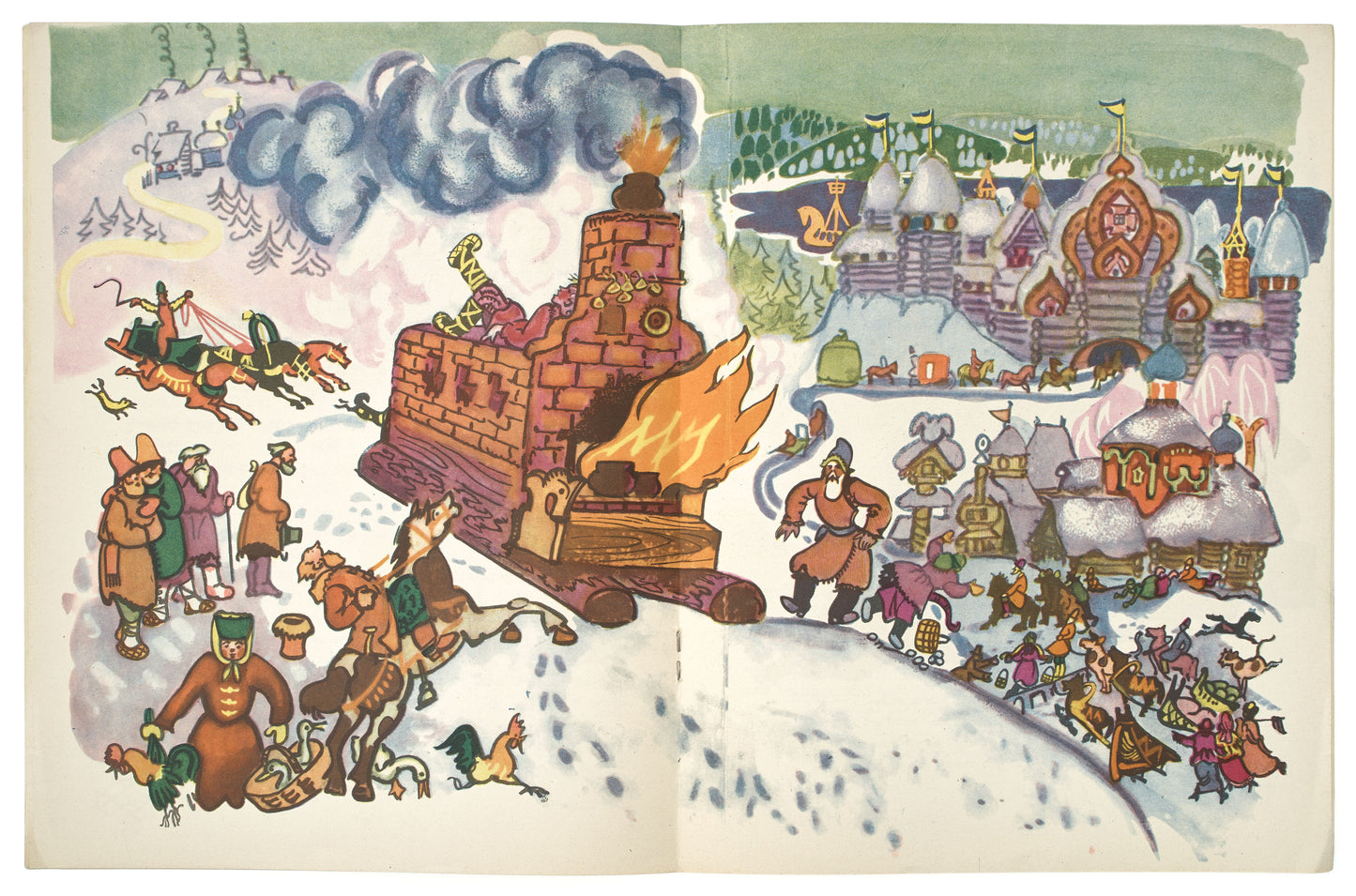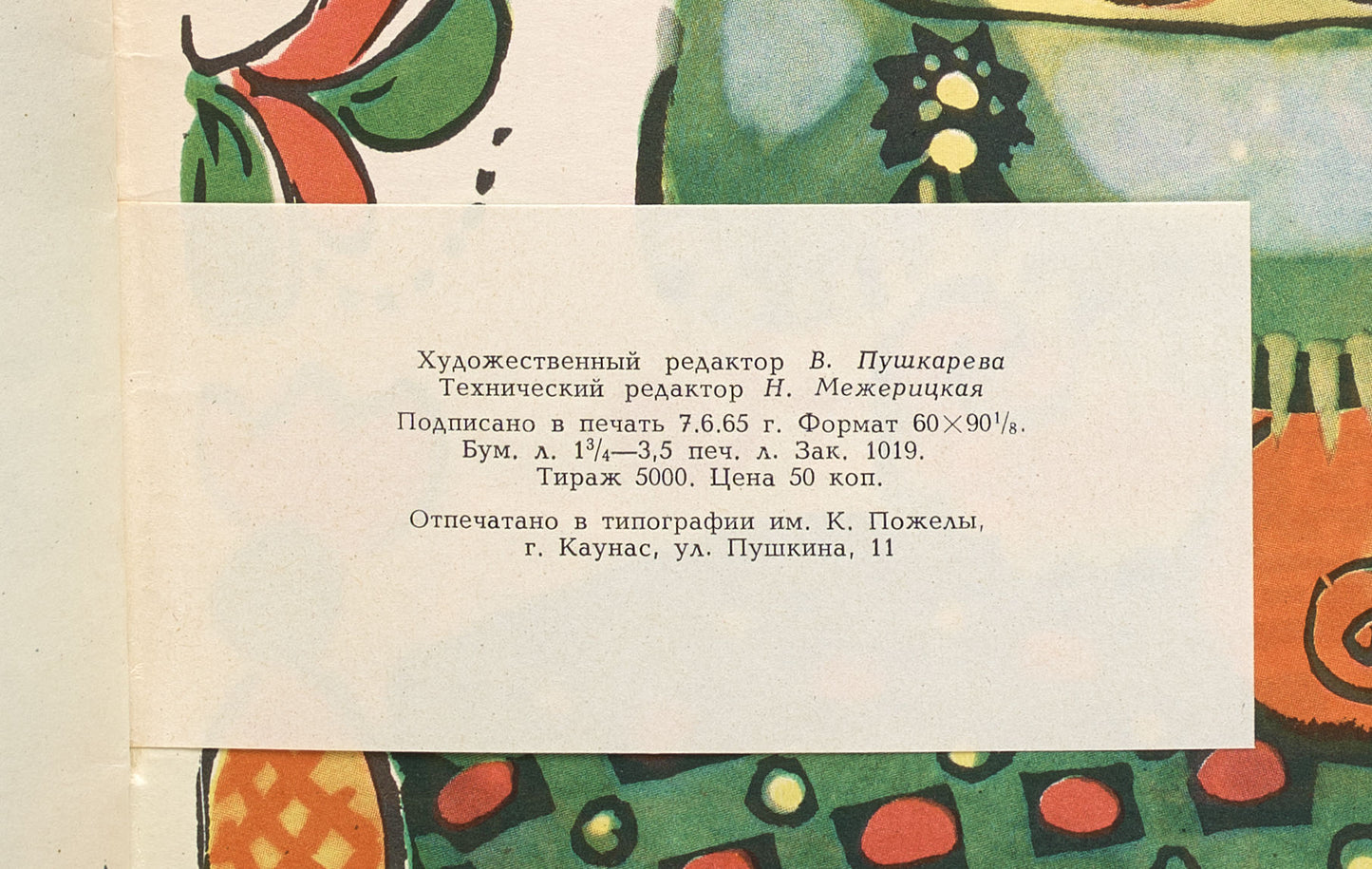By The Will of The Pike. Russian folk tale. In Telugu with Mavrina's illustrations
By The Will of The Pike. Russian folk tale. In Telugu with Mavrina's illustrations
Couldn't load pickup availability
[By The Will of The Pike: Russian folk tale]. మత్స్య మిత్రుడి మంత్ర మహిమ రష్యన్ జానపద కథ.
In Telugu.
Adaptation by M. Bulatov.
Illustrations by T. Mavrina.
మాస్కో [Moscow],ప్రగతి ప్రచురణాలయం [Progress Publishers], 1965.
8vo, 22, [2] pp.
In original illustrated wrappers.
Near very good condition. Small tears to spine, lightly worn. Printing house slip laid in.
Rare. Printed in Kaunas. One of 5 000 copies published.
The first edition of this fairy tale, featuring illustrations by Mavrina, was published in 1958. It was also translated into English, Swahili, Vietnamese, Arabic, and various Indian languages, such as Assamese, Odia, Gujarati, and Kannada.
Tatiana Lebedeva (1900/1902-1996) better known by her mother's surname, Mavrina, used it as a pseudonym. She studied under Robert Falk at VKhUTEMAS and was a member of 'Group 13', a collective of graphic artists formed in 1929. Her first illustrated children's book was published in the same year. Like other Russian avant-garde artists during the 1930s, Mavrina turned to illustrating children's books as a way to avoid persecution during Stalin's reign. Following World War II, Mavrina developed her own distinctive and easily recognizable style, which combined the traditions of Russian primitivism with the painterly techniques of the early twentieth century. Her illustrations of Russian folktales have since become classics, and in 1976, Mavrina became the first Russian artist to win the Hans Christian Andersen Award for her illustrations of children's books.
The book was part of the children's collection of Inna Shmeleva (1929-2020), an artist who studied under Ely Bielutin, the founder of The New Reality artistic academy. In 1962, Shmeleva participated in the 30th anniversary of the Moscow Union of Artists at the Central Exhibition Hall (Manège), which was heavily criticized by Nikita Khrushchev. This event marked the end of the period known as the Khrushchev Thaw.
We couldn't trace any copy of this edition in the USA or European libraries via OCLC.
